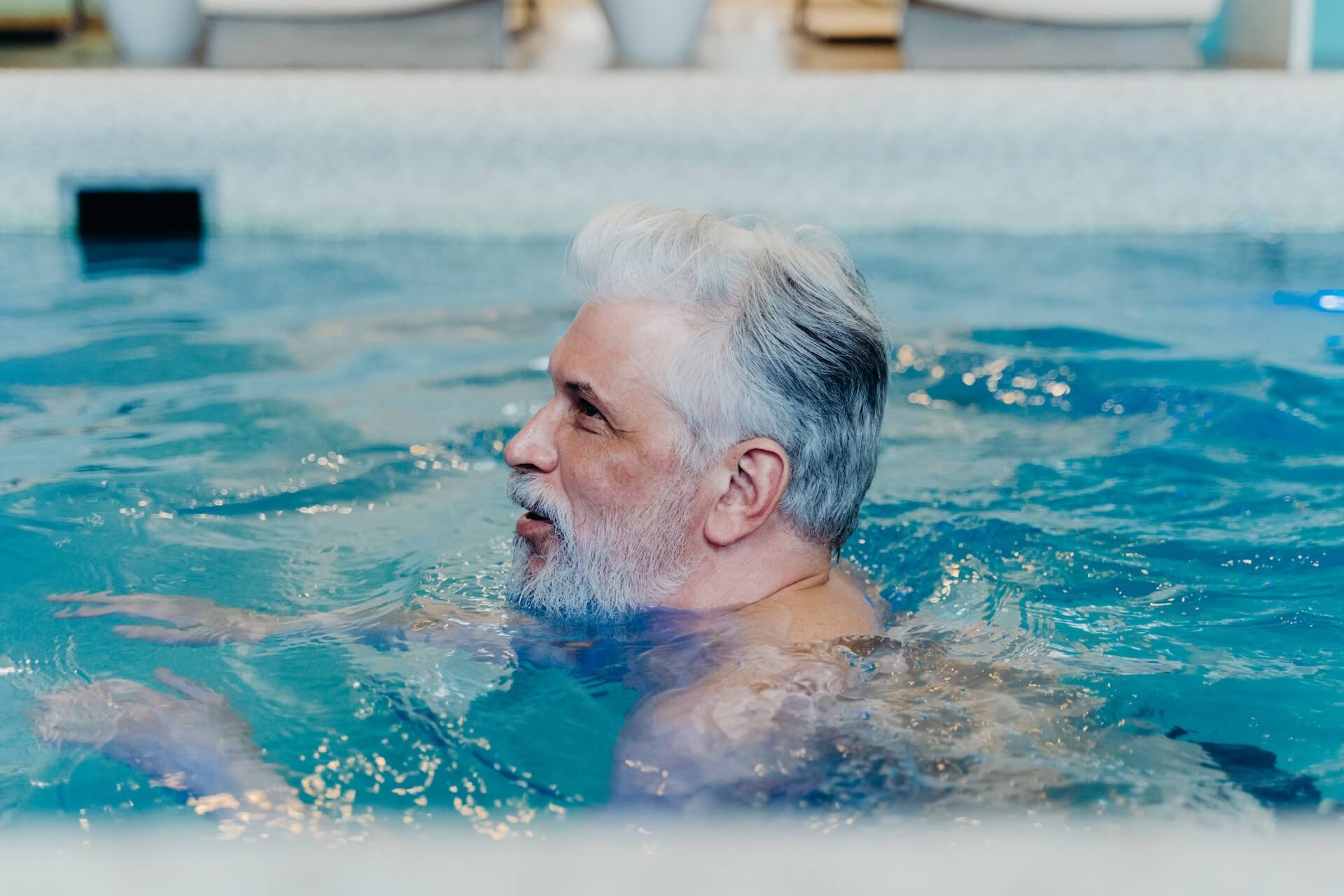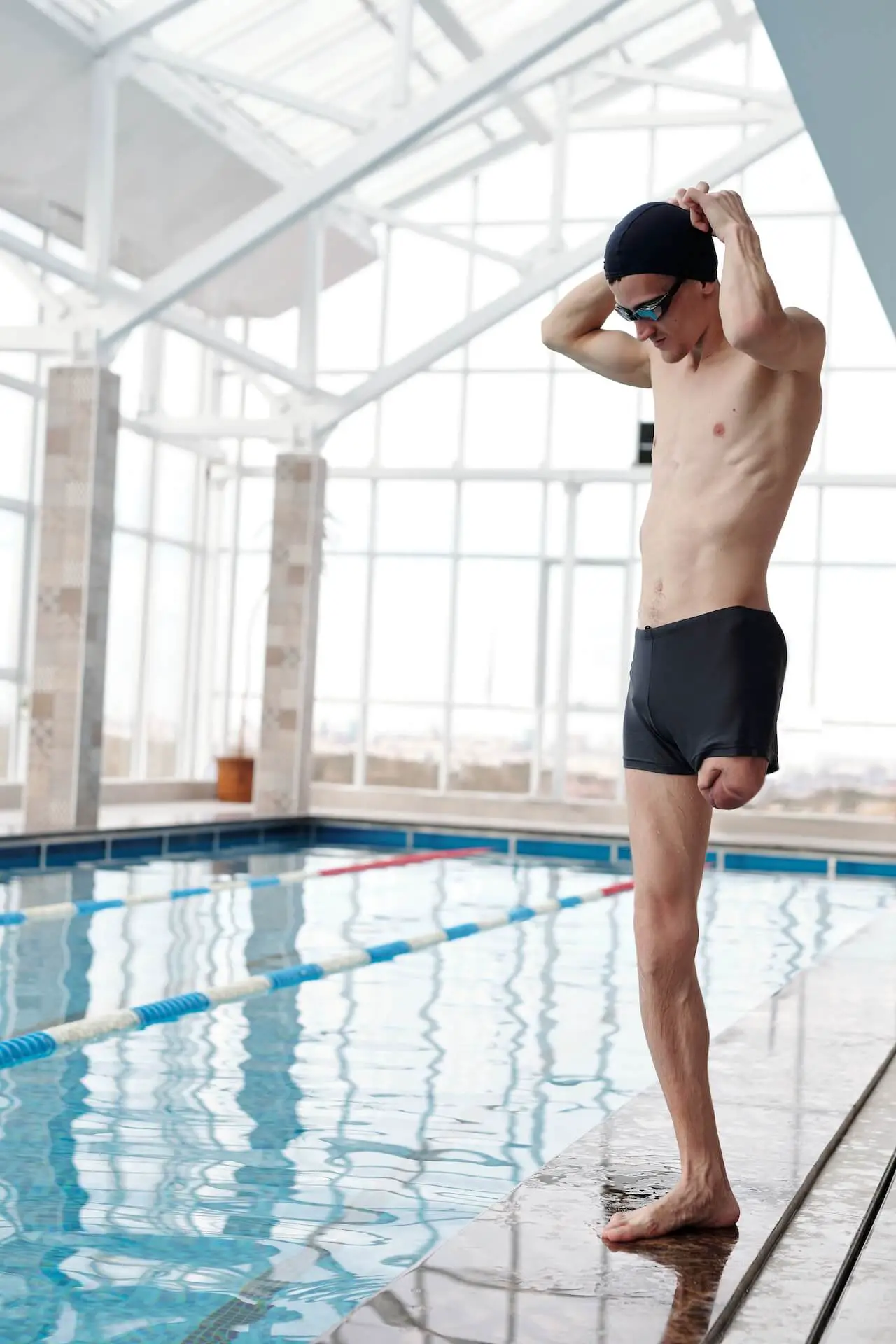If you’re considering taking up swimming as a regular exercise, you might be curious about how it impacts your longevity. Many people claim swimming is a powerful way to stay healthy and boost your overall lifespan. But do swimmers really live longer?

Swimming is a full-body, low-impact exercise that provides numerous health benefits, from improving cardiovascular function to increasing muscle strength. With so many benefits, it’s no wonder that studies suggest swimmers tend to have longer lifespans compared to non-swimmers, and even to people who engage in other physical activities.
Keep reading on as we explore the reasons behind this correlation and understand why this popular water sport might be worth considering for your own health journey.
Health Benefits of Swimming
Cardiovascular Health
Swimming is an excellent aerobic exercise that can help improve your heart health. It can raise your heart rate without putting too much stress on your body.
As you swim regularly, you’ll strengthen your heart muscles and improve your circulation, reducing your risk of heart disease. Moreover, swimming can also help regulate blood pressure and maintain a healthy weight, further promoting heart health.
Muscle Strength and Flexibility
Swimming uses almost all muscle groups in your body, making it a great full-body workout.
As you swim, you’ll notice improvements in your core strength, as well as your upper and lower body muscles. The water resistance forces you to work harder, aiding in muscle building and toning.
Additionally, the buoyancy provides a low-impact environment, reducing stress on your joints and promoting flexibility in your muscles.
Mental Health
Swimming has been known to be beneficial for your mental well-being. The combination of a physical workout and the soothing effect of water can help reduce stress, anxiety, and depression.
Regular swimming sessions can release endorphins, which are natural mood boosters, and promote relaxation.
Additionally, swimming has been linked to lowering the risk of dementia by keeping your brain sharp and promoting cognitive function.
Reduced Risk of Disease
Regular swimming can help reduce the risk of certain diseases and health issues. For example, swimming helps to regulate blood glucose levels, which can lower your risk of developing type 2 diabetes.
Also, engaging in regular aerobic exercise like swimming helps maintain a healthy BMI, reducing the risk of obesity-related illnesses. Moreover, swimming has been associated with a decreased risk of certain cancers, as it encourages overall health and wellness.
Swimming and Life Expectancy

Studies on Swimmers’ Lifespan
Swimming is often praised for its ability to promote cardiovascular health and joint longevity. In fact, two studies combined, involving over 355,000 people, have shown that swimmers may enjoy an additional 10 years of life compared to non-swimmers.
In another long-term study conducted at Indiana University Bloomington’s Counsilman Center for the Science of Swimming, it was found that Master Swimmers (aged over 35) who swam between 3.2 and 4.8 km three to five times a week successfully postponed the aging process.
Comparing Swimming to Other Exercises
When it comes to longevity, swimming stands out among other physical activities. A study conducted among 80,306 British adults aged 30+ concluded that participation in swimming significantly contributed to a longer lifespan compared to other sports.
Moreover, swimming has some advantages over exercises like running. For one, swimming exposes you to fewer injuries since it is low-impact and gentle on your joints. Additionally, swimming works on multiple muscle groups while providing a full-body workout.
Factors Affecting Longevity in Swimmers
Swimming’s positive impact on longevity can be attributed to a number of factors:
- It’s an excellent way to maintain cardiovascular health, thus reducing the risk of heart disease.
- Swimming helps combat obesity, a known contributor to shorter lifespans.
- The water provides a low-impact, low-injury environment that’s safer compared to other exercises.
- Being immersed in water has a calming effect, which may help lower stress levels and support mental wellbeing.
When you engage in regular swimming sessions, you’re not only enjoying the immediate benefits of exercise, but also potentially increasing your life expectancy and quality of life. So, if you’ve been dragging your feet wondering if you should start, the best time to dive in is right now!
Swimming for Different Ages and Abilities
Benefits for Older Adults
Swimming is an excellent form of exercise for people of all ages, especially for older adults. As you age, it becomes increasingly important to maintain regular physical activity to keep your body and brain healthy.
Swimming provides a low-impact aerobic workout that can help strengthen your muscles, increase your flexibility, and improve your cardiovascular health. The buoyancy of the water supports your weight, reducing stress on your joints and bones.
Swimming for People with Injuries or Disabilities

If you have an injury or disability, swimming can be an ideal form of exercise. The water’s resistance and buoyancy make it a supportive environment for rehabilitating and strengthening injured muscles.
Swimming can also challenge and improve your coordination and balance. Since the water provides resistance, you can perform various exercises without the need for weights or other equipment.
Regardless of your physical abilities, swimming offers a customizable workout that can be safely adjusted to meet your needs.
Swim Training for Performance
For those interested in improving their swimming performance, proper swim training is essential. Exercise researcher David Costill, Ph.D., suggests that improvement in performance is not always related to the distance you swim, but more to the efficiency of your swim techniques.
You can tailor your swim training routine according to your goals, whether training for a competition or aiming for overall fitness improvements. Swim training can involve interval training, resistance work, and technique enhancement to maximize your performance.
Frequently Asked Questions
Does swimming increase life expectancy?
Yes, swimming has been shown to increase life expectancy. A study involving more than 355,000 people found that those who swim regularly, eat healthily, and avoid tobacco may add up to 10 years to their lives. Swimmers also have a 49% lower mortality rate than runners.
Can swimming help slow down the aging process?
Swimming is a great way to slow down the aging process. The low impact nature of the exercise, combined with its full-body workout, makes it an excellent choice to stay fit and healthy as you age. Swimming can improve your flexibility and posture over time, reducing the risk of injuries and age-related aches and pains.
Are there benefits to swimming at an older age?
Absolutely! Swimming provides various benefits for people of all ages, including seniors. Engaging in swimming as an older adult can help maintain cardiovascular and muscular strength, improve balance, increase flexibility, and even enhance mental well-being. The water’s buoyancy helps reduce the impact on joints, making swimming a suitable exercise for seniors with arthritis or mobility issues.
Do swimmers typically have lower illness rates?
Swimmers tend to have lower illness rates compared to non-swimmers. Since swimming is a highly aerobic activity, it helps in strengthening your heart and improving circulation, which contributes to a healthier immune system. Additionally, regular swimmers often lead active lifestyles, which can play a role in reducing the risk of chronic illness.
Is swimming suitable for people over 50?
Swimming is an excellent exercise for people over 50 as it is low-impact and can be tailored to individual abilities. It provides essential benefits, like improving cardiovascular health, building muscle strength, and increasing flexibility, which are crucial in maintaining overall health as you age. So yes, swimming is not only suitable but also highly recommended for those over 50.
Does swimming contribute to a healthier physique?
Swimming is a full-body workout that engages your core, arms, legs, and back muscles, leading to a healthier, more toned physique. As a versatile exercise, different swimming strokes can target various muscle groups, allowing you to tailor your workout to meet your specific fitness goals. So, if you’re looking to achieve a healthier and more athletic physique, swimming can be an excellent choice of exercise.
Sources:
- https://www.active.com/articles/swimmers-live-longer-study-says
- https://www.everythingzoomer.com/health/fitness/2019/08/19/swimming-exercise-aging/
- https://www.outdoorswimmingsociety.com/swimming-makes-live-longer/
- https://www.prevention.com/fitness/fitness-tips/a20447836/swim-for-a-longer-life/
- https://www.bestliferates.org/blog/swimmers/
- https://www.a3performance.com/blogs/a3-performance/9-reasons-why-swimmers-live-longer-plus-bonuses

